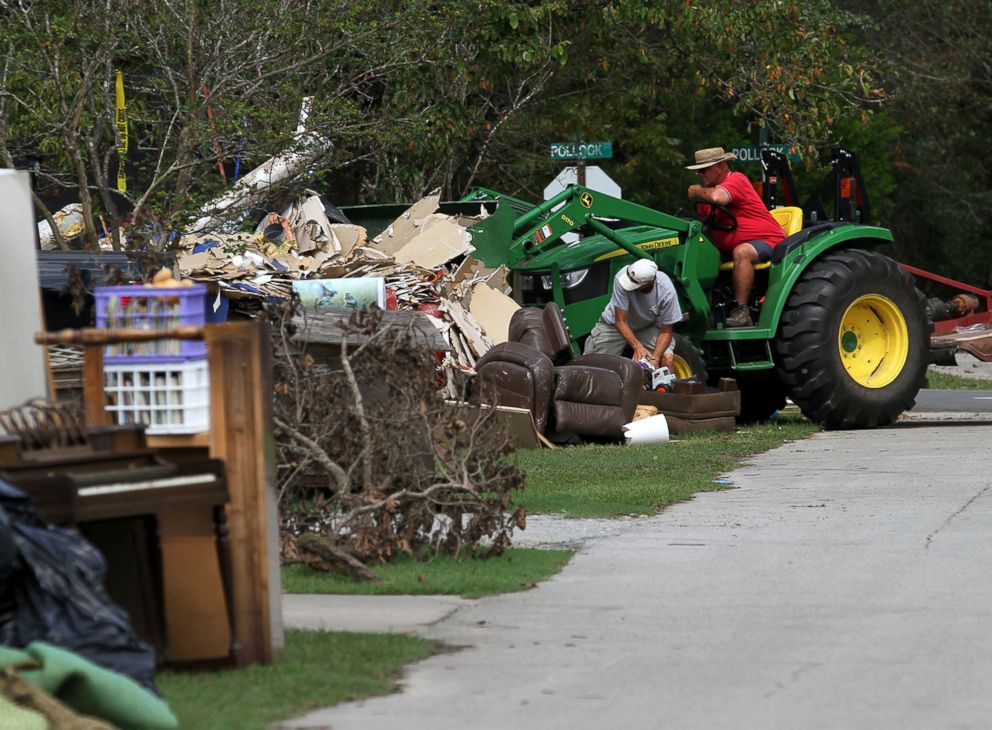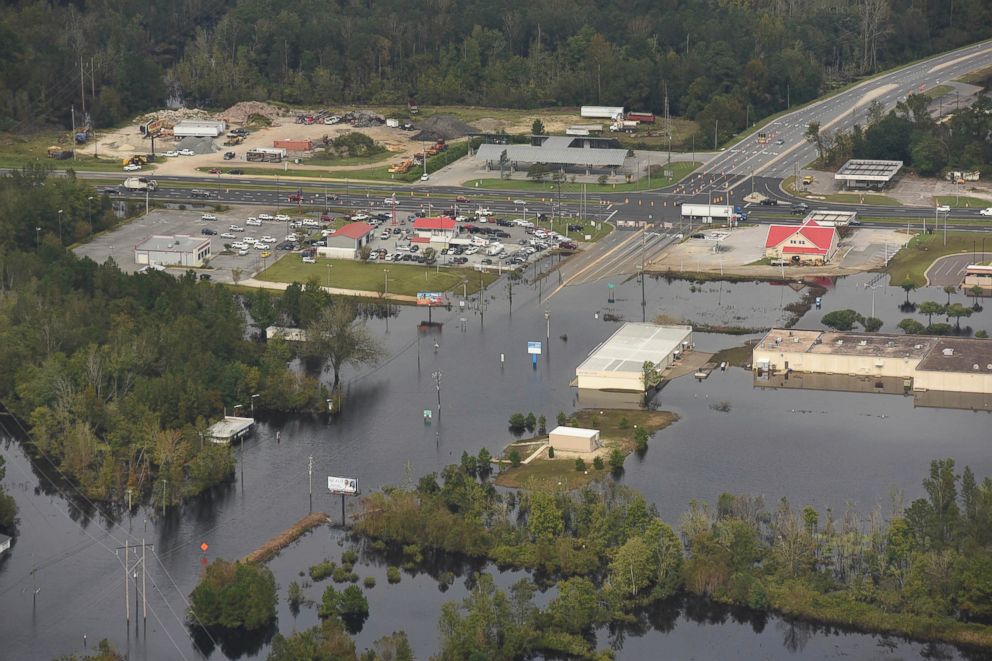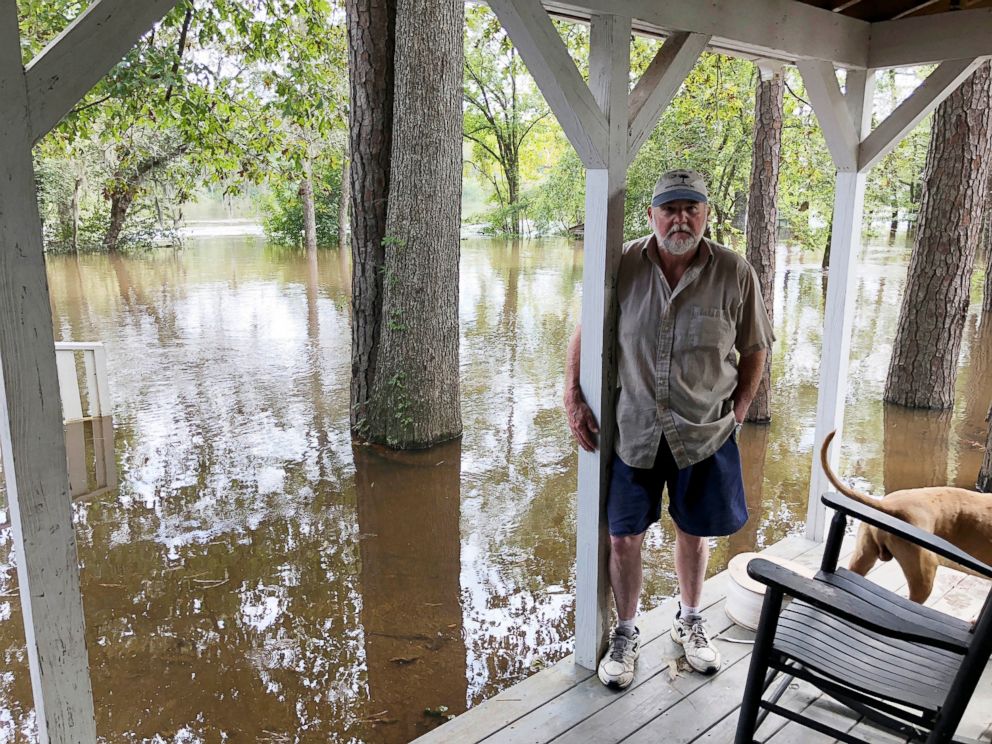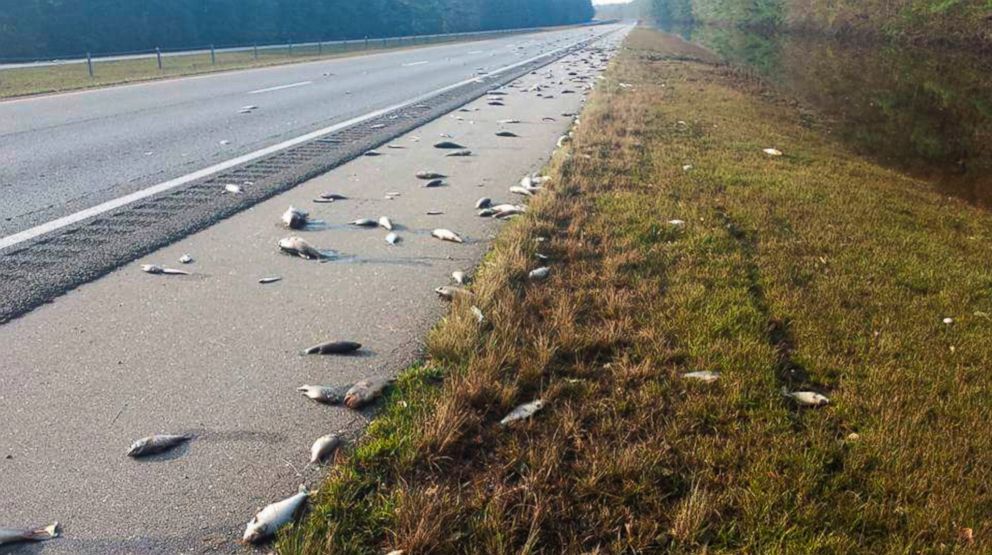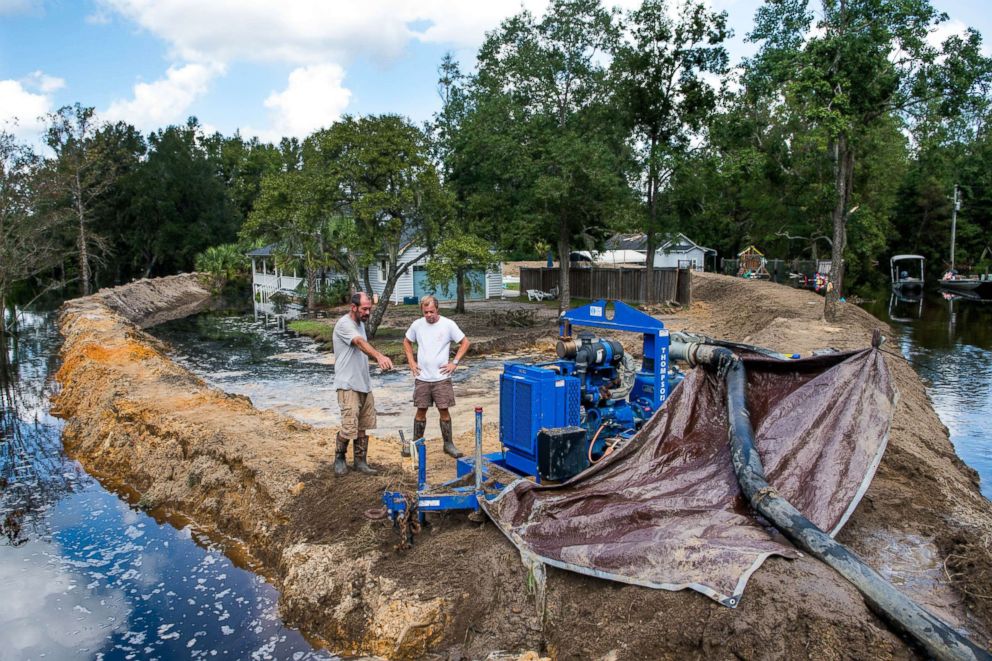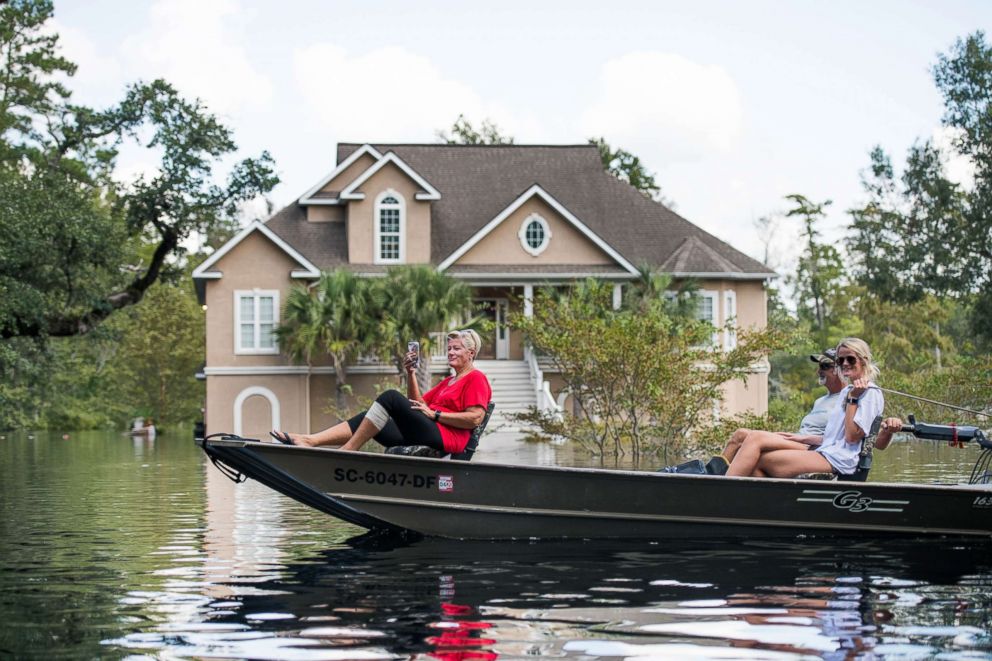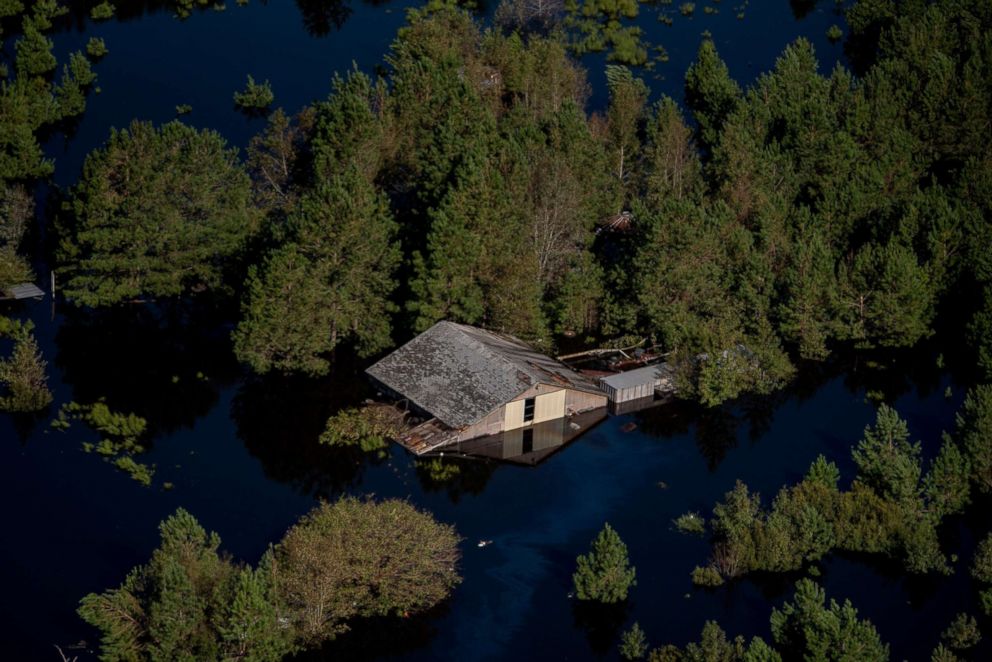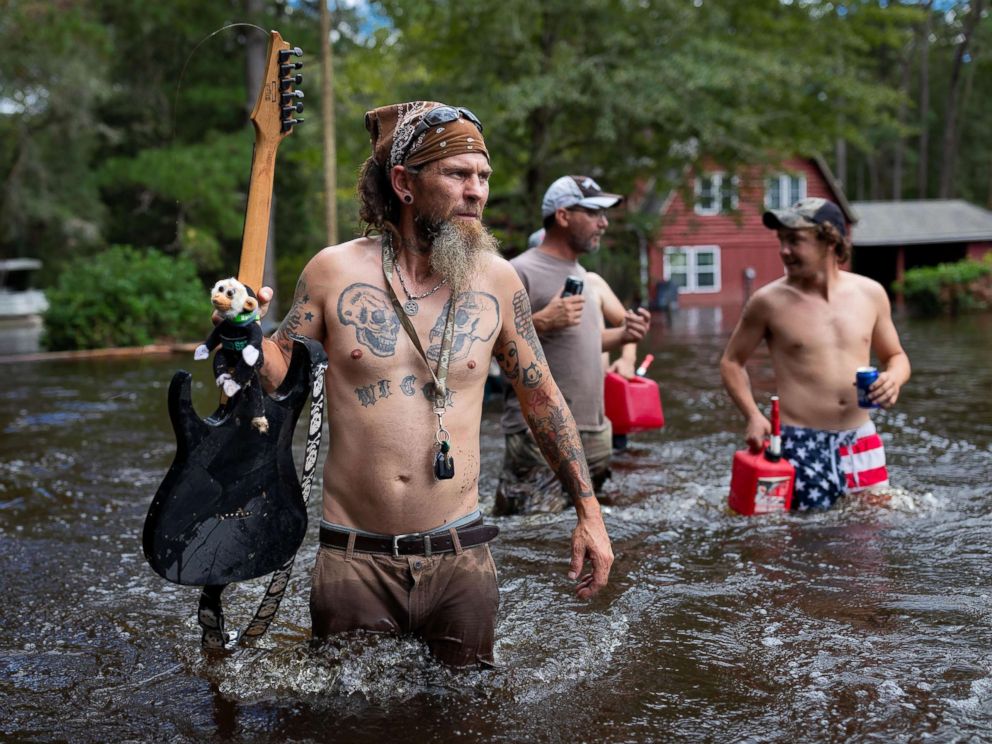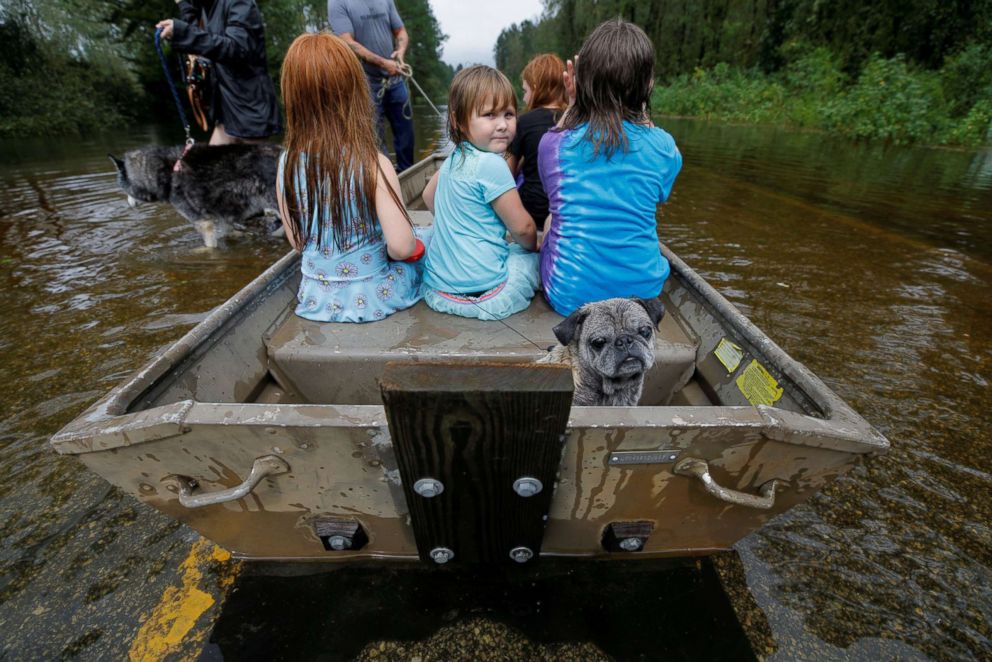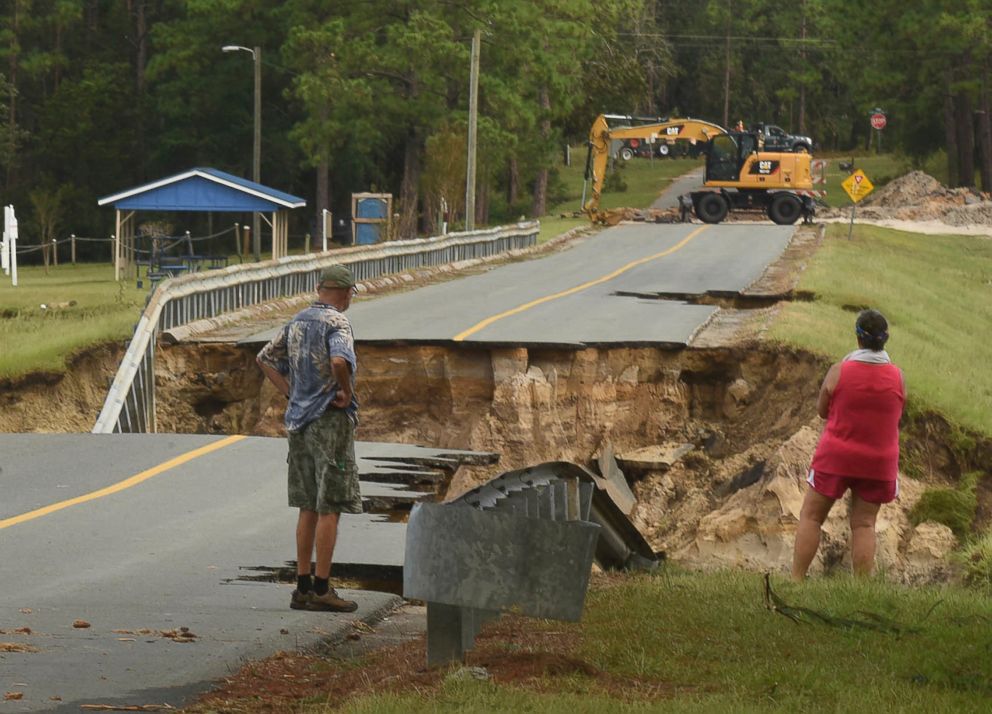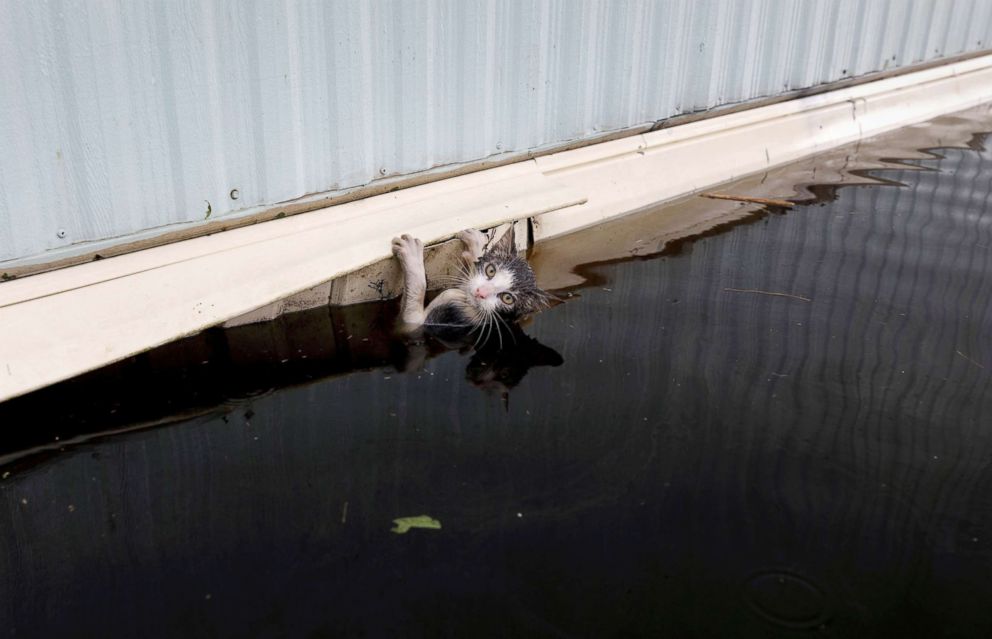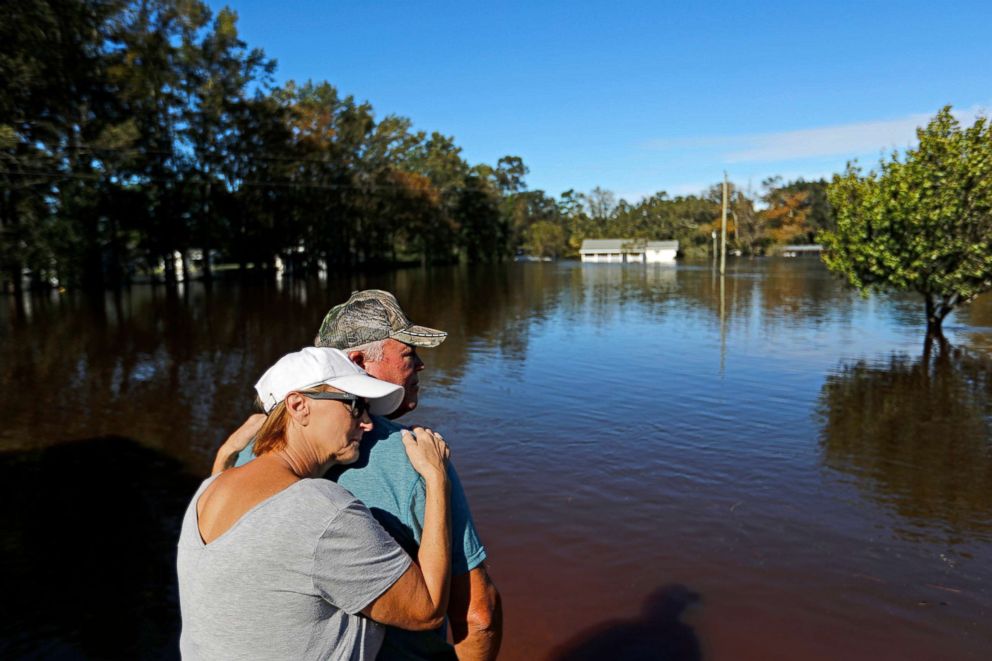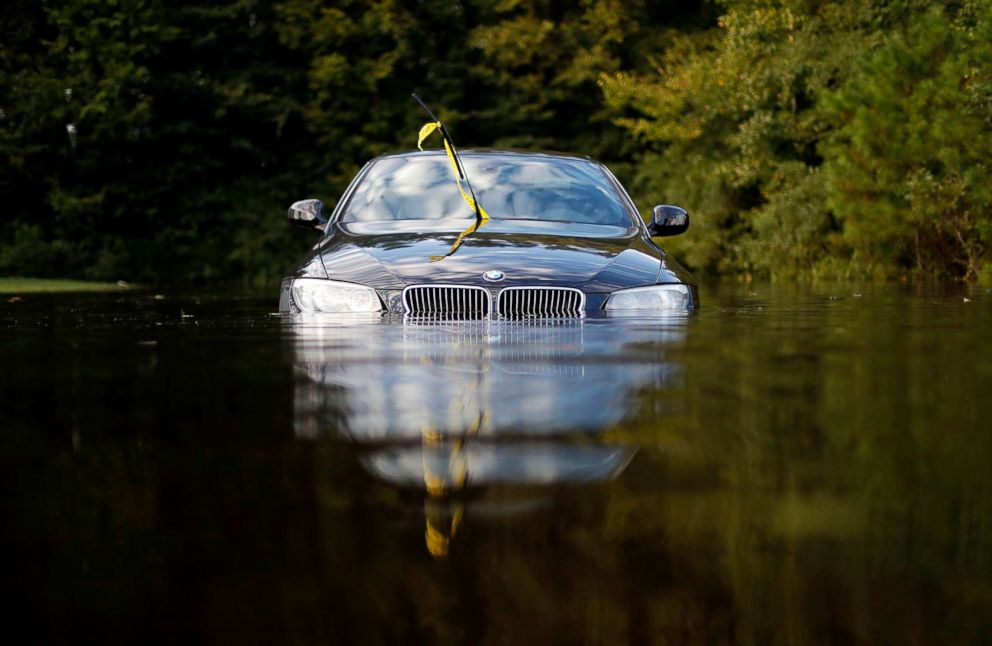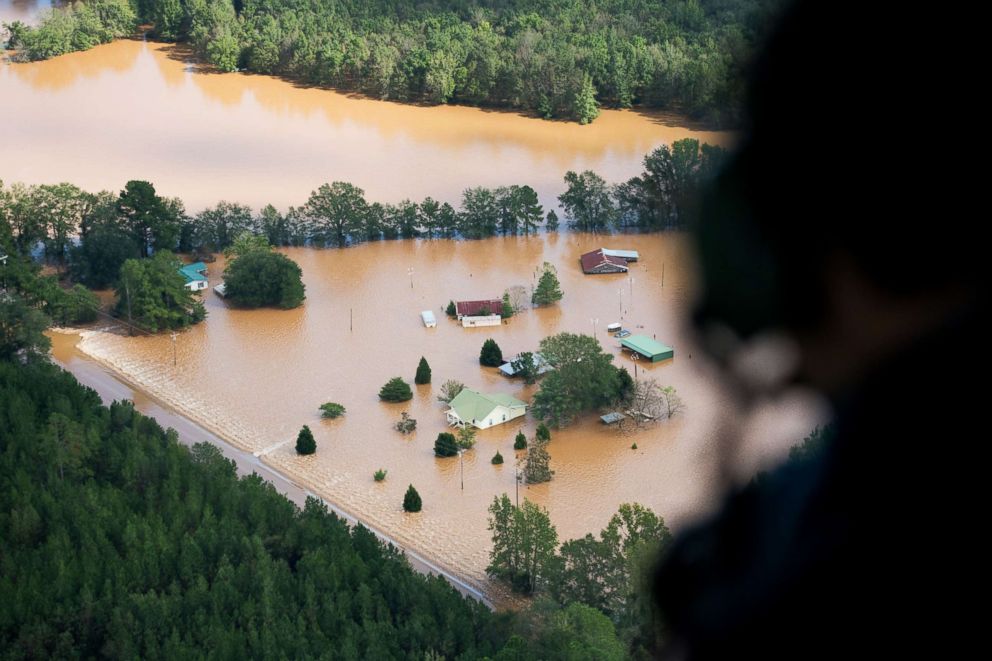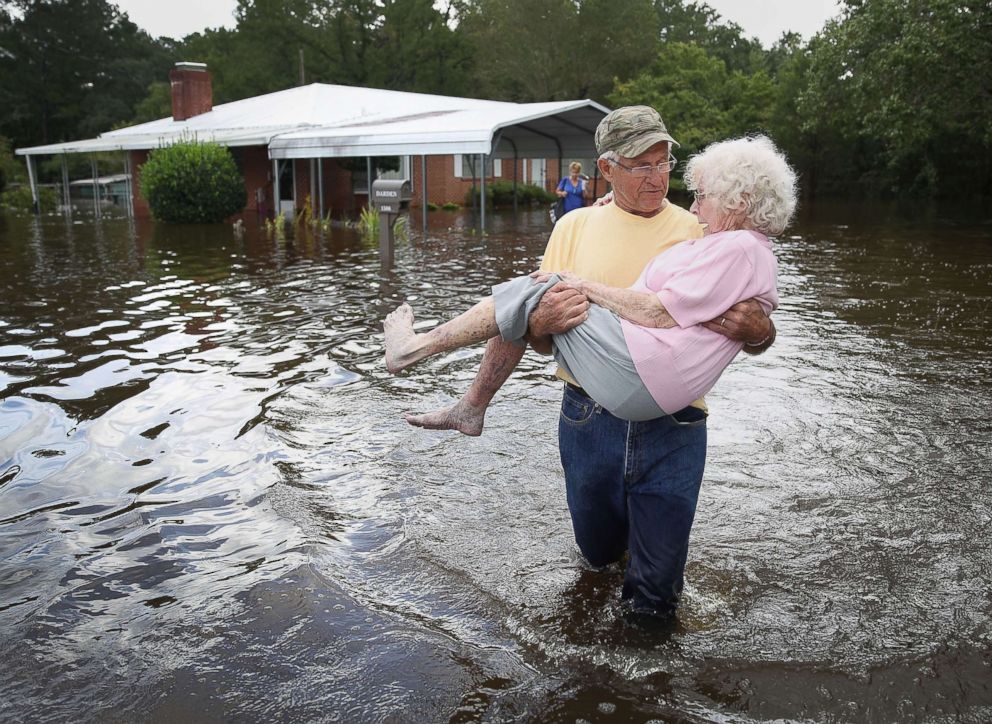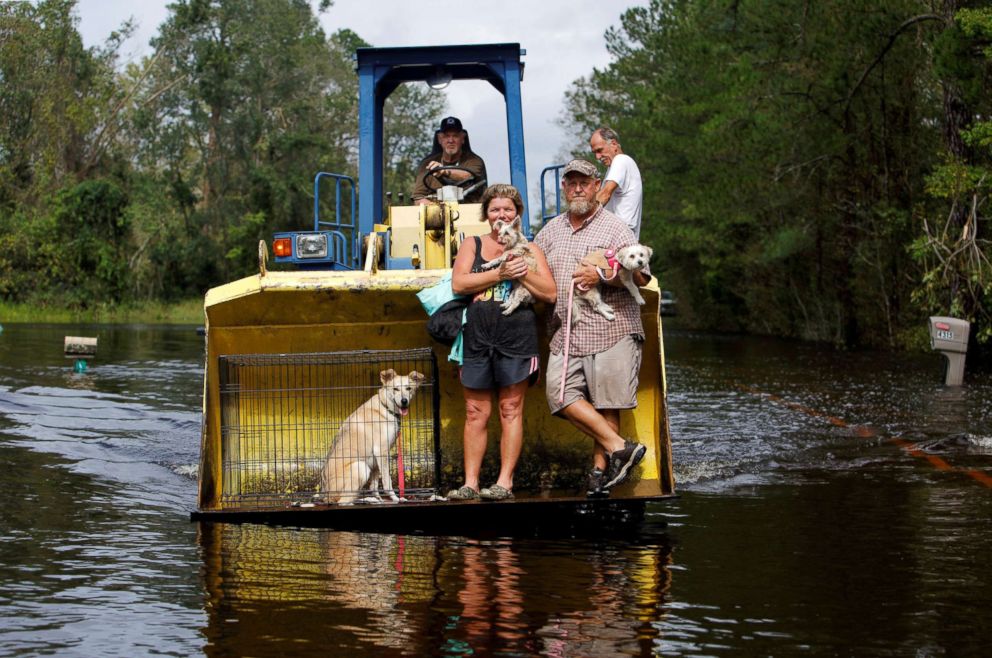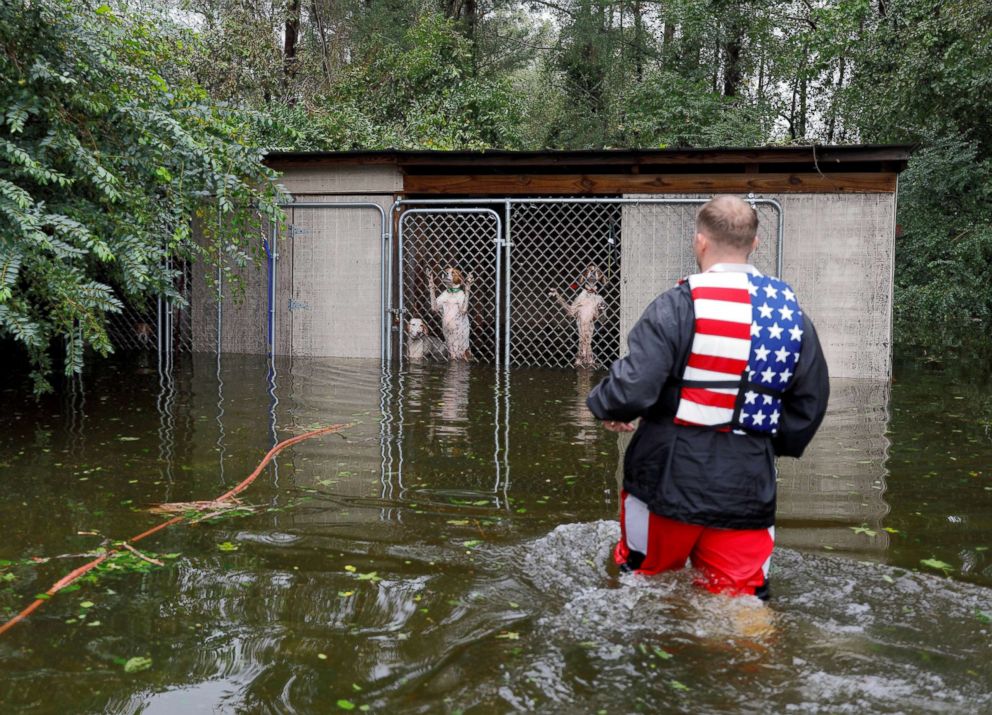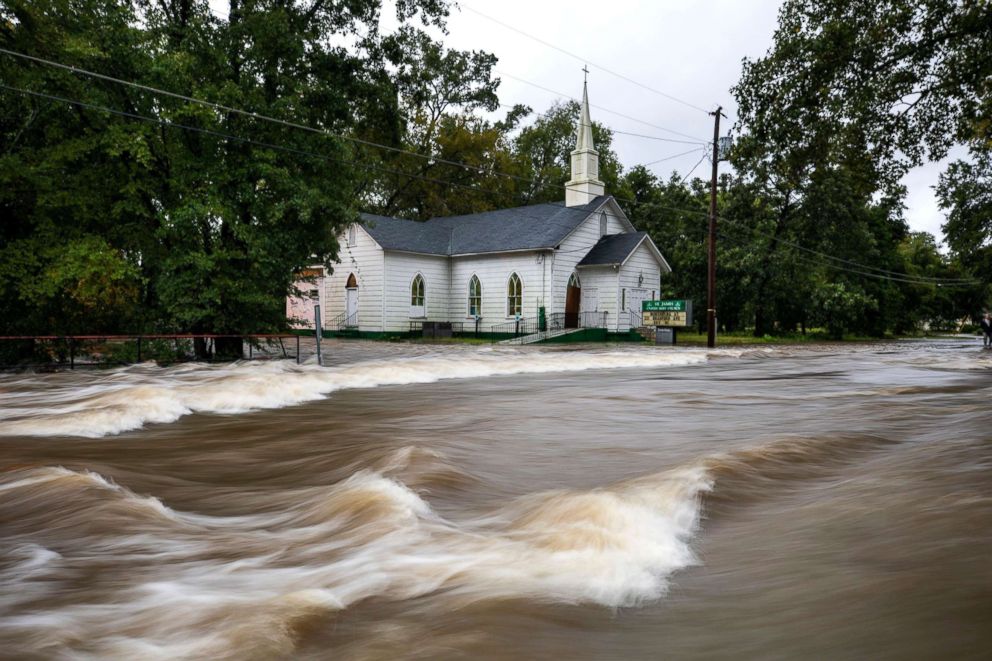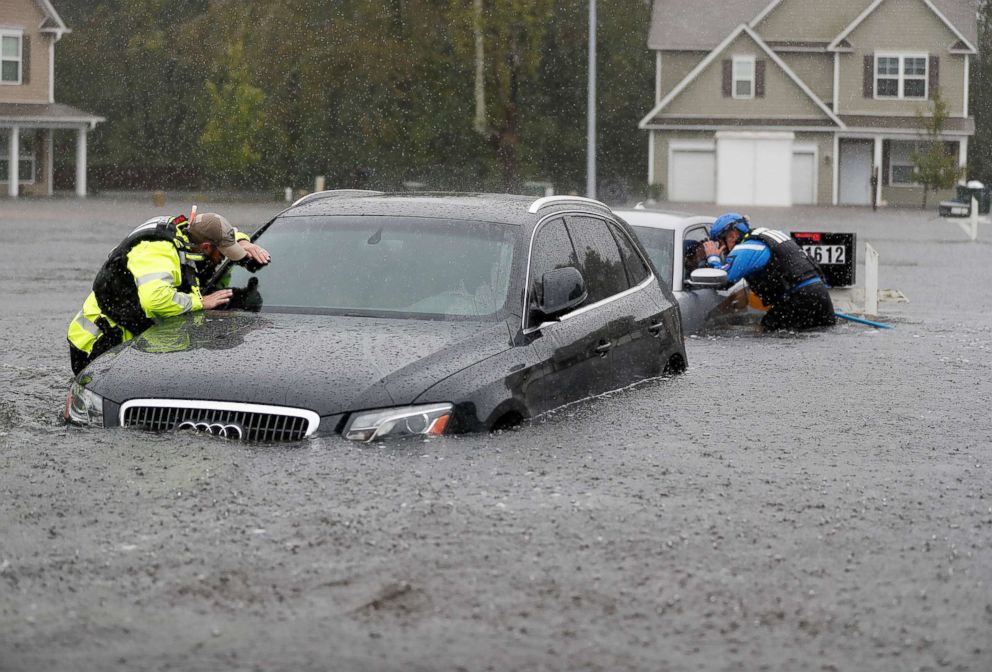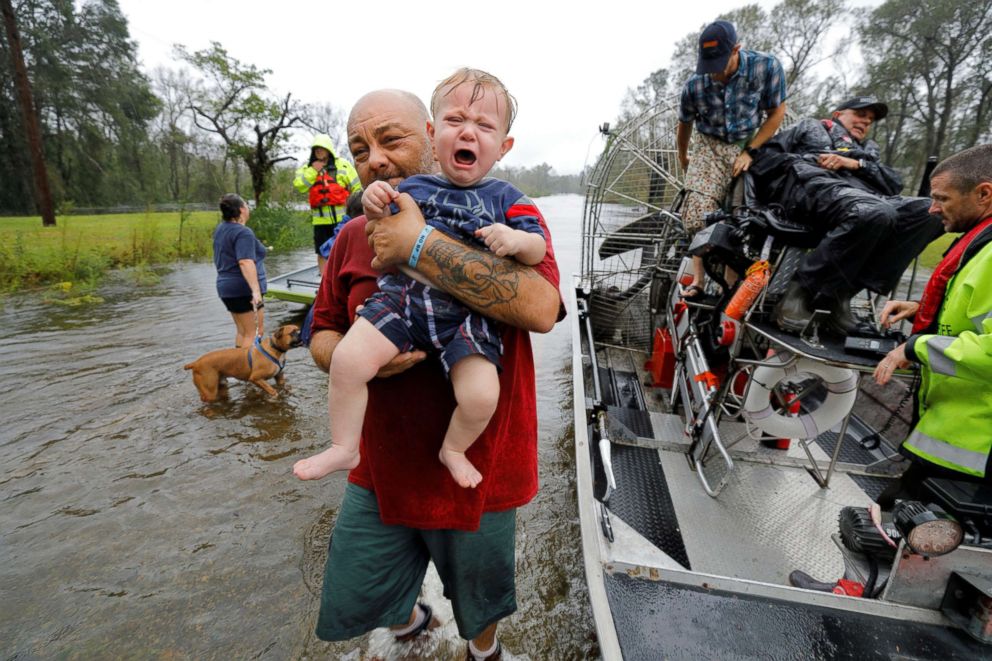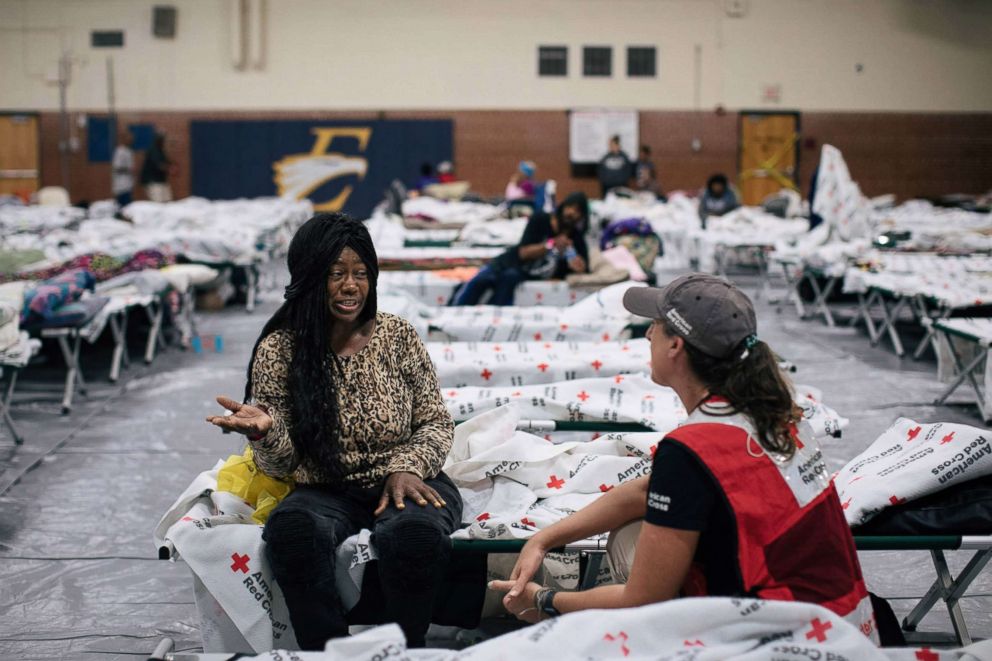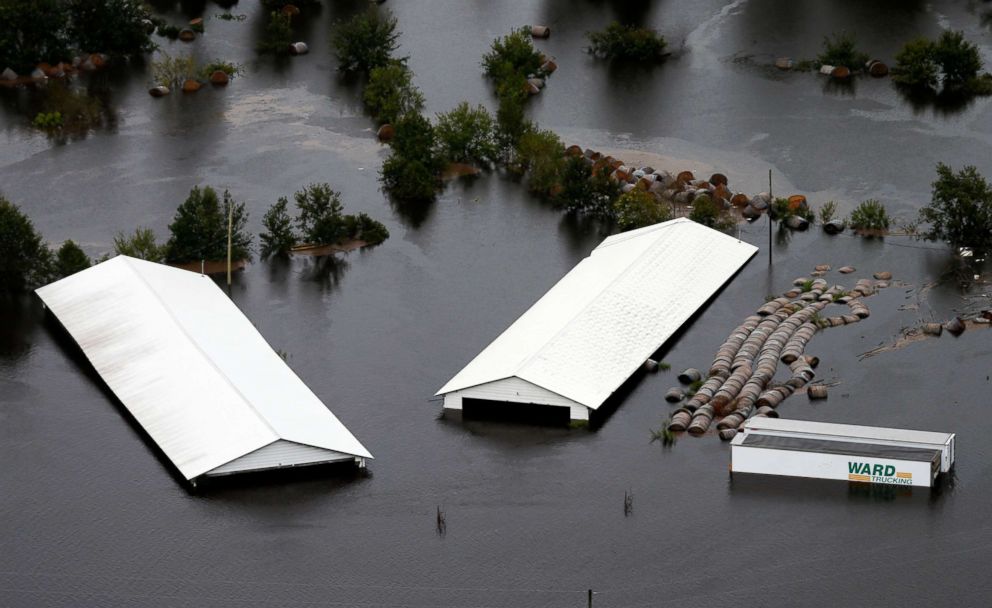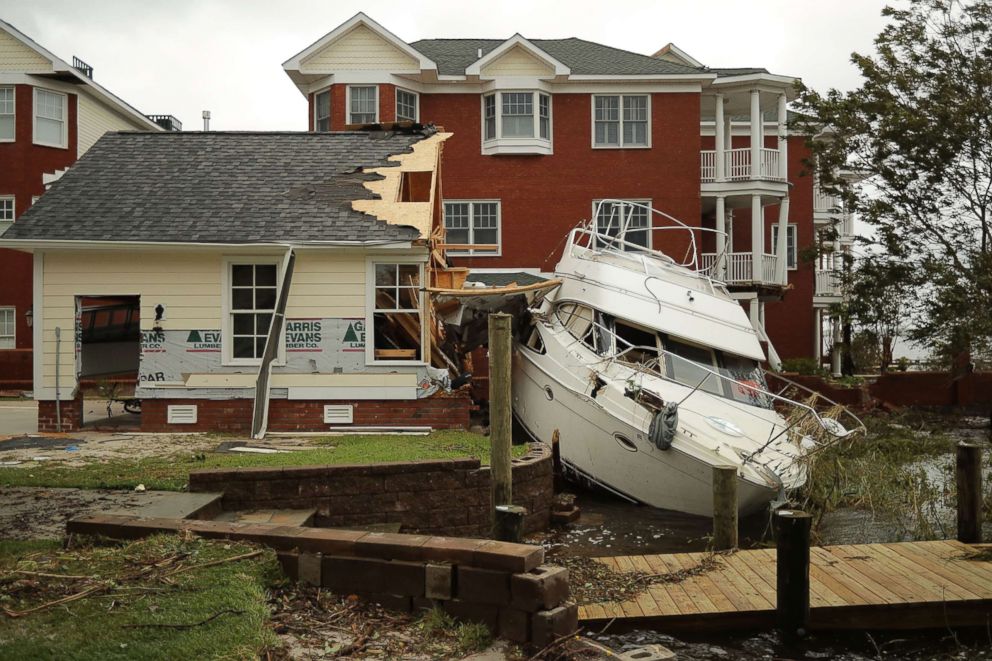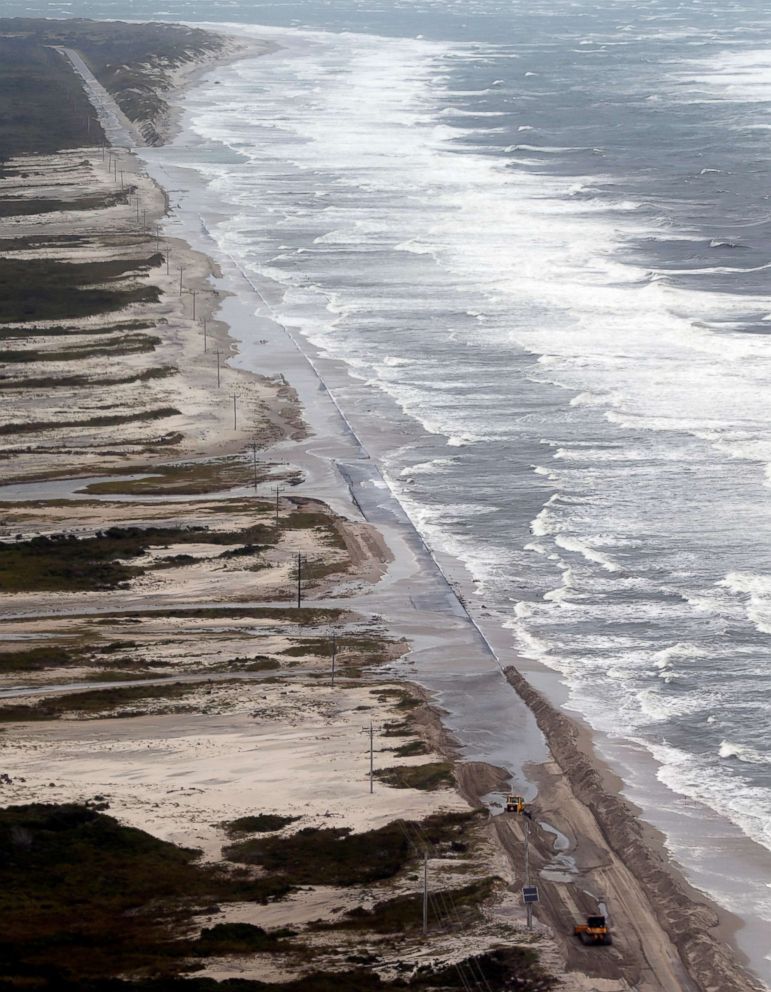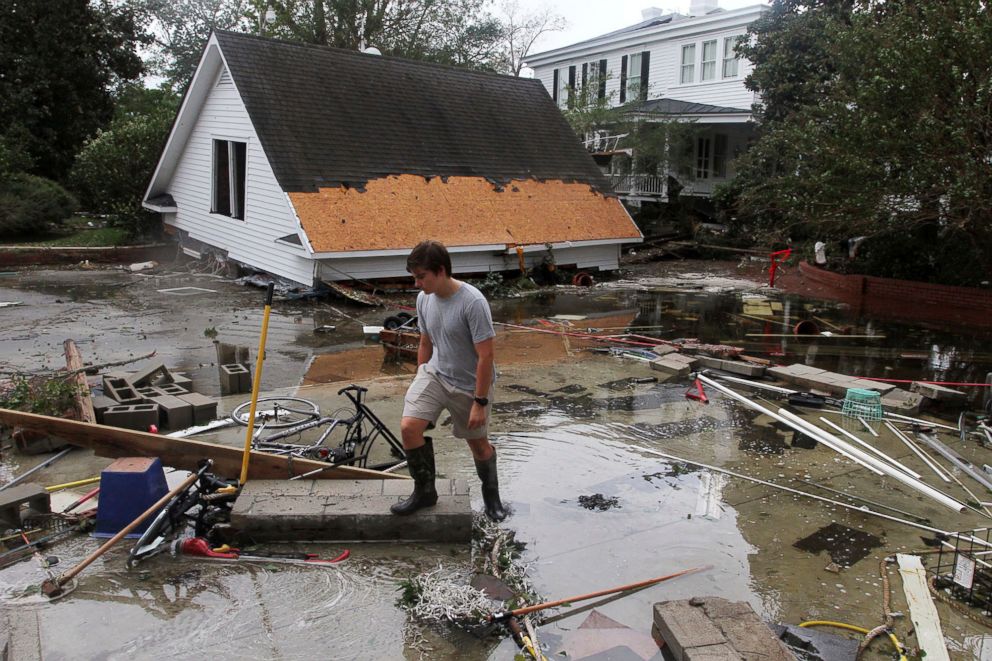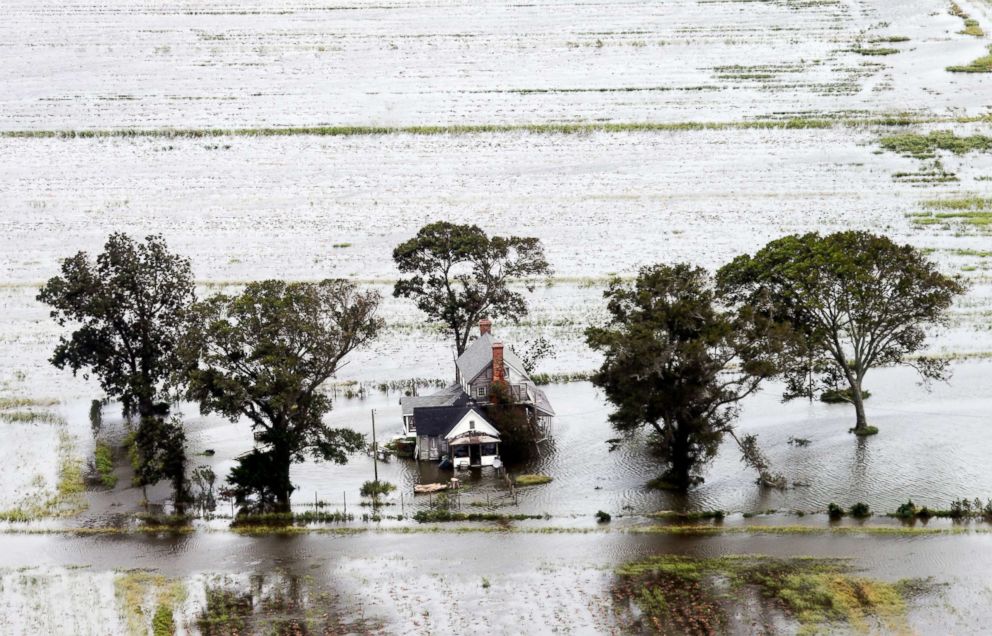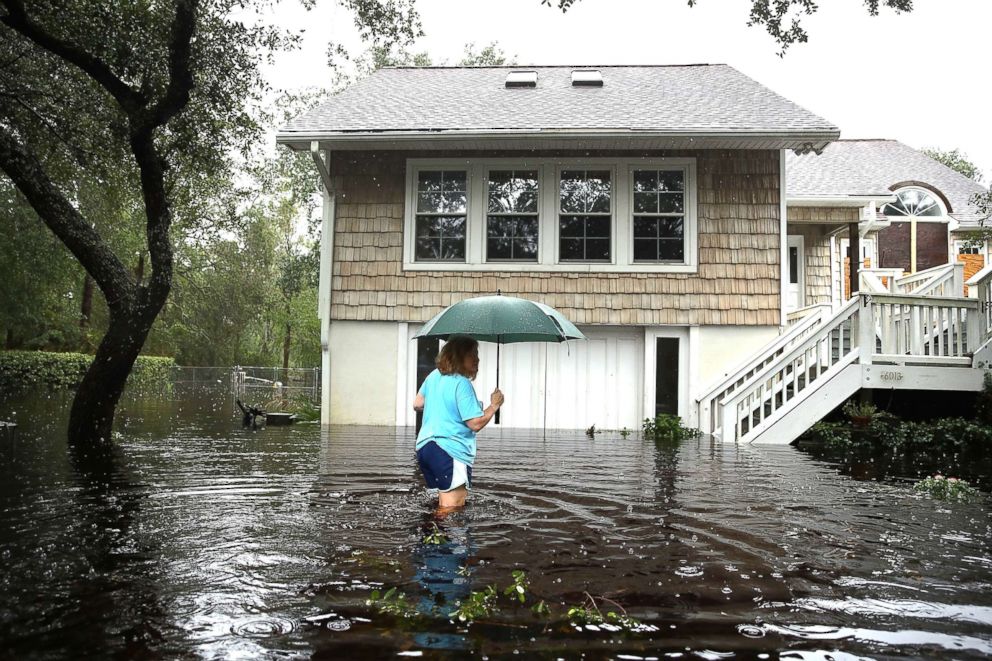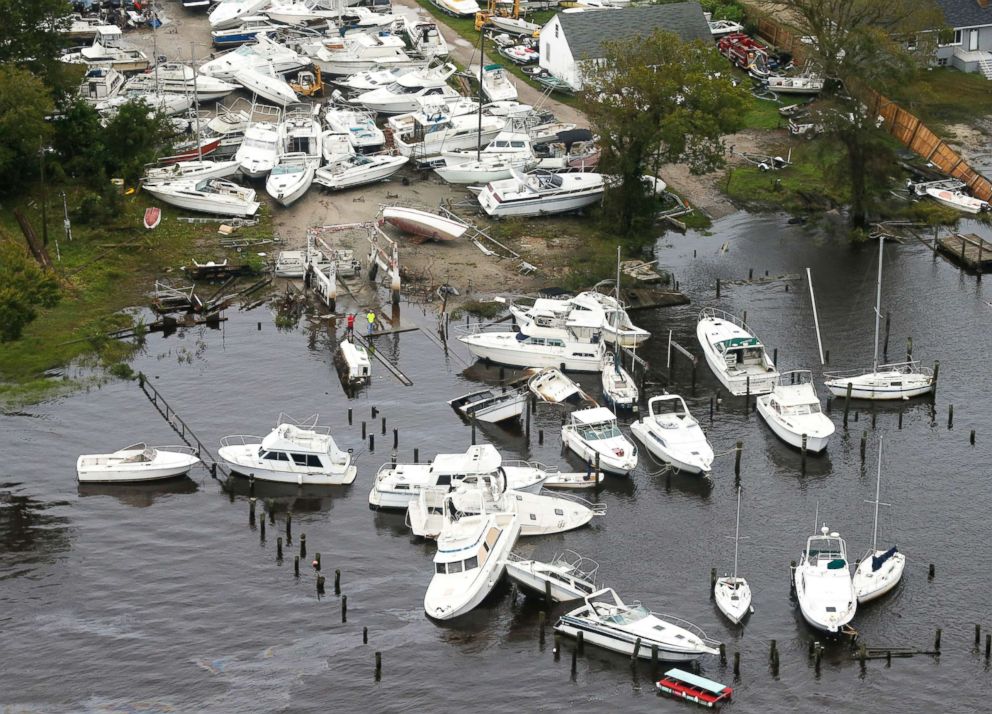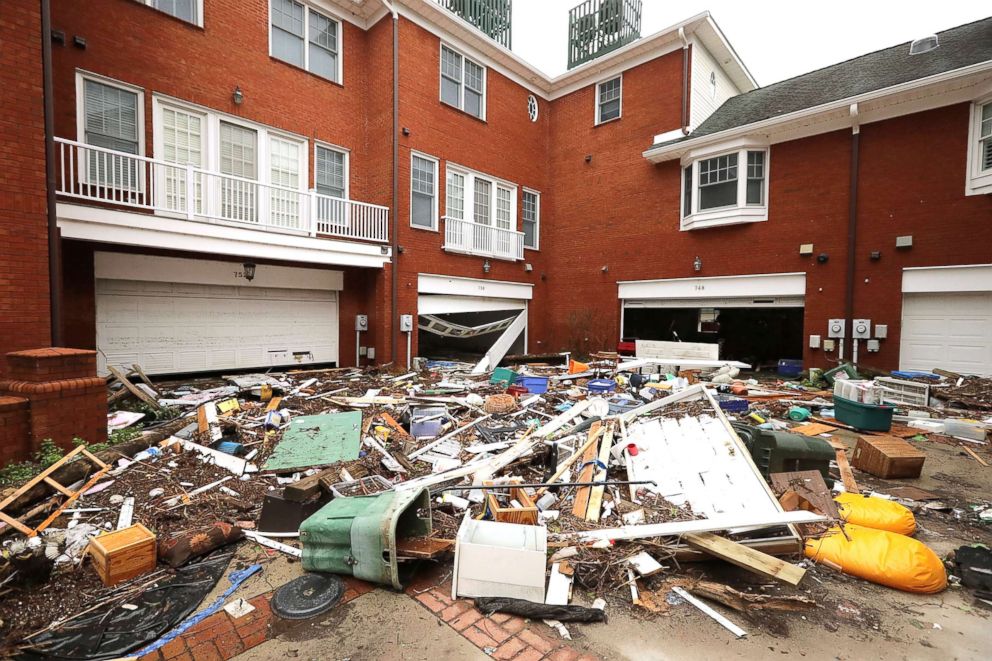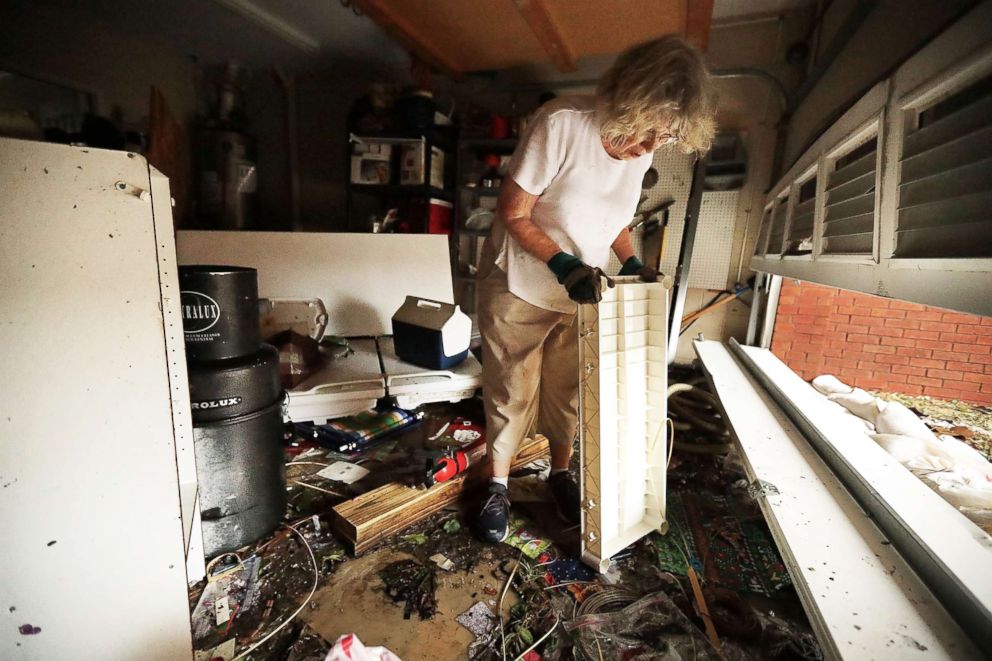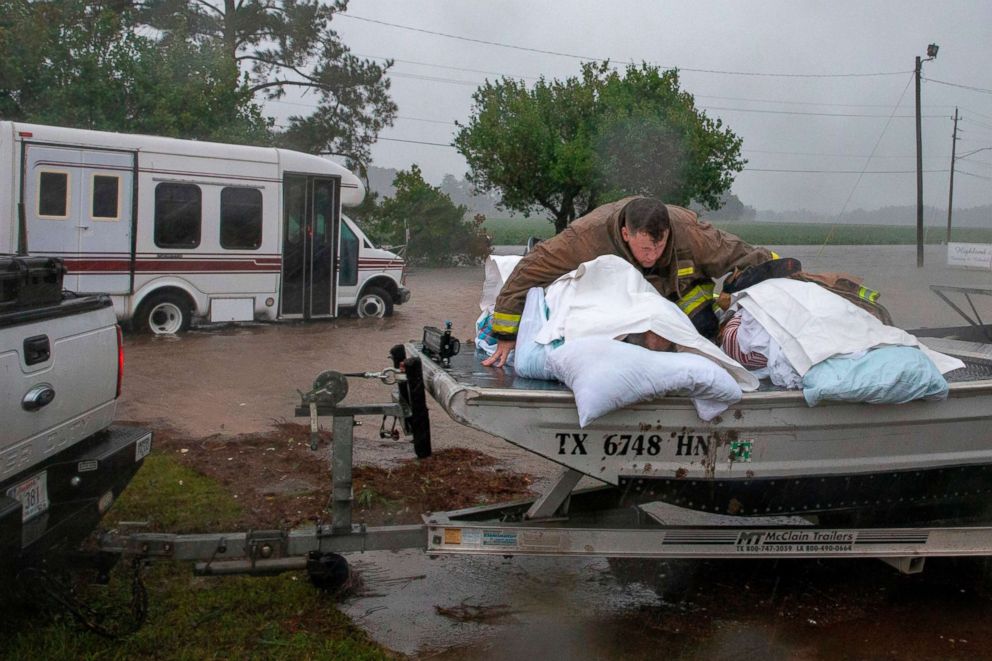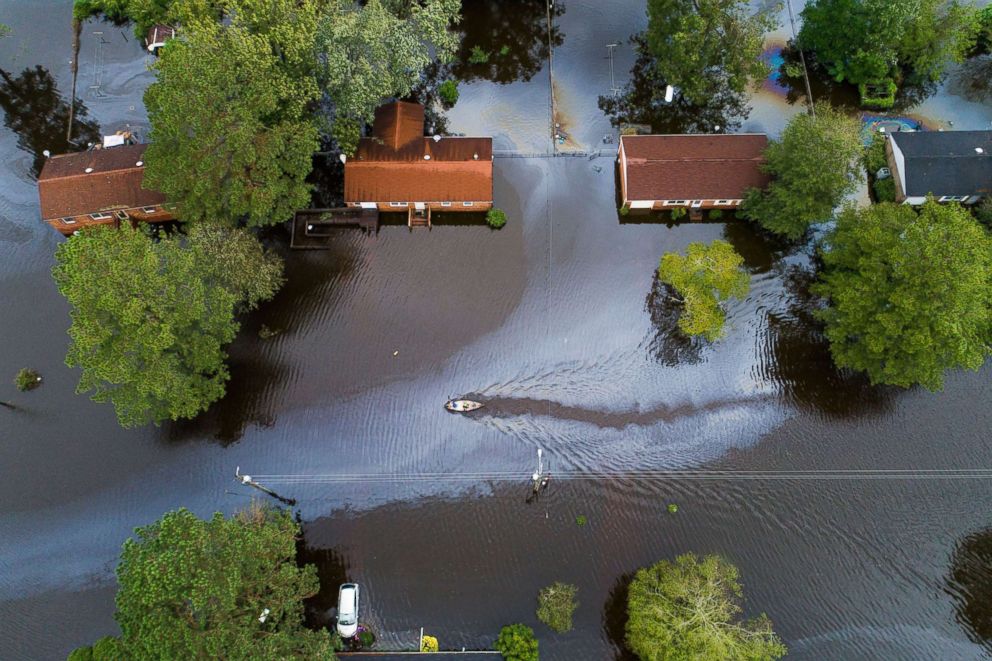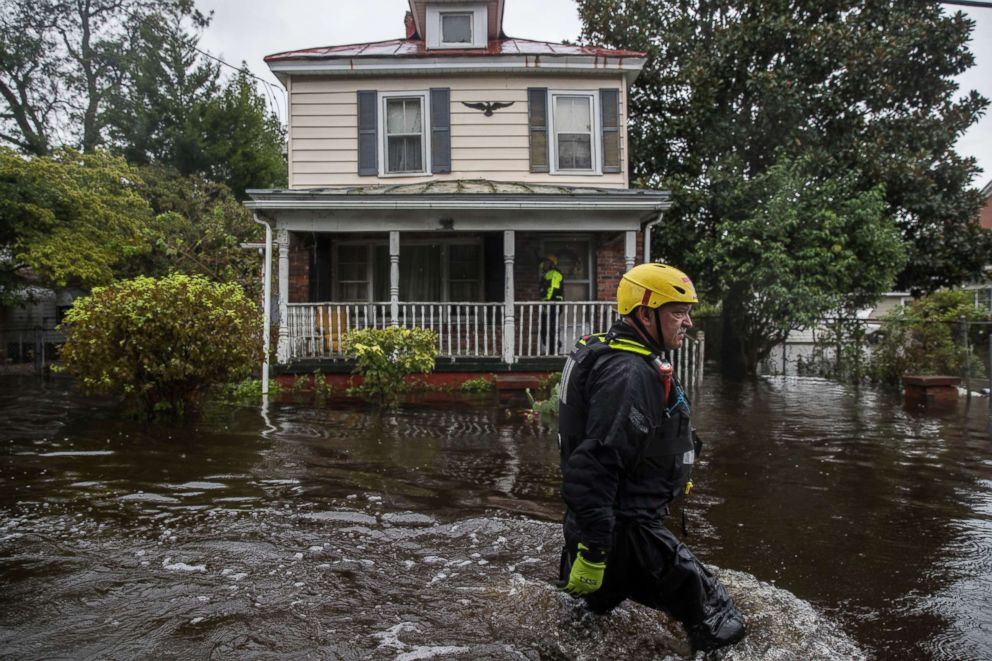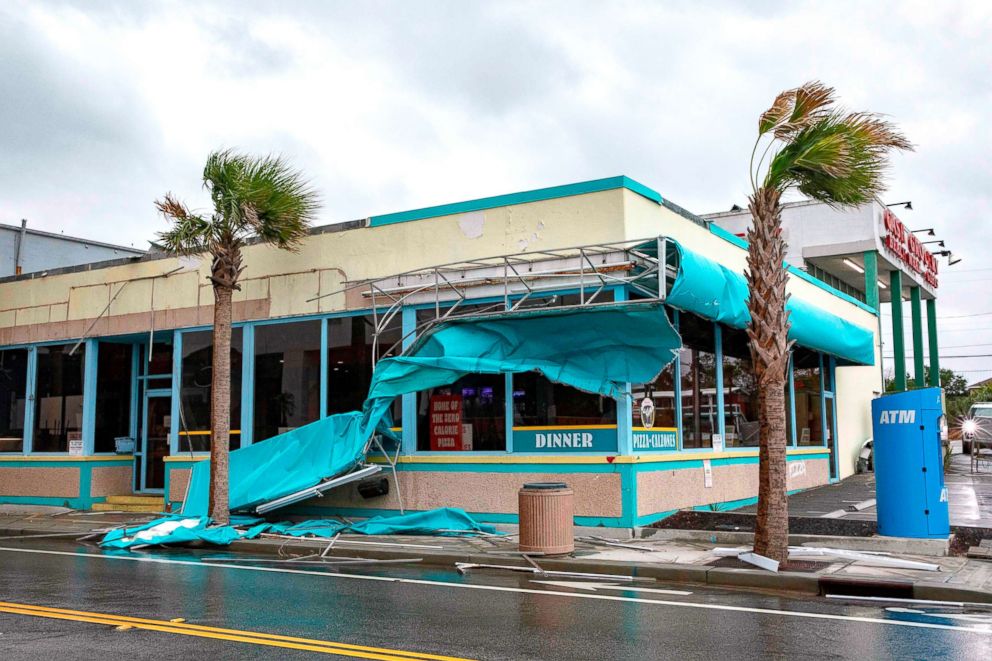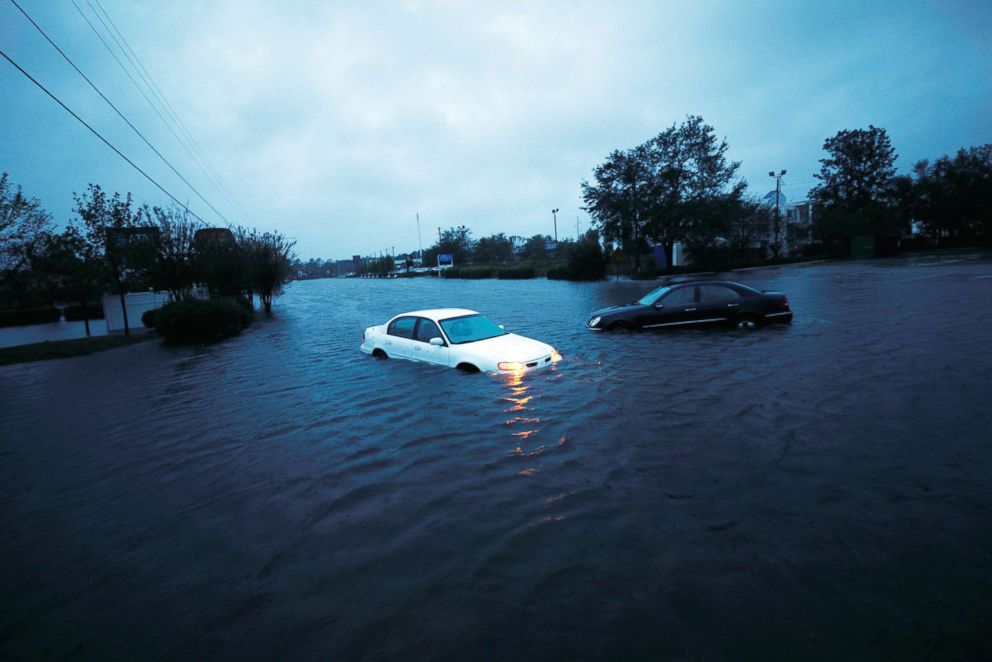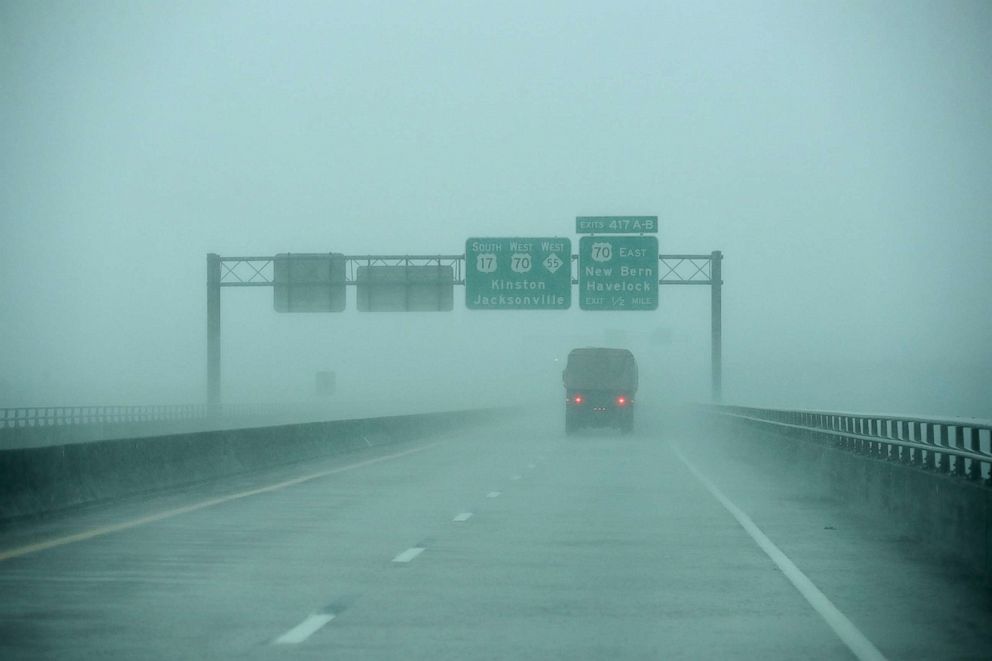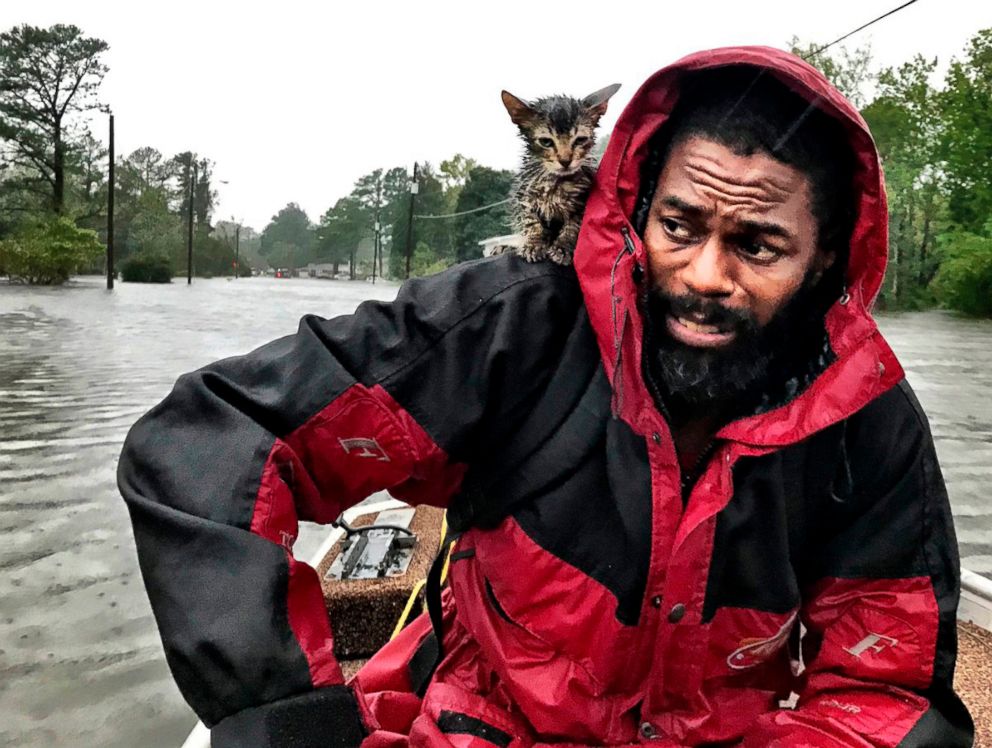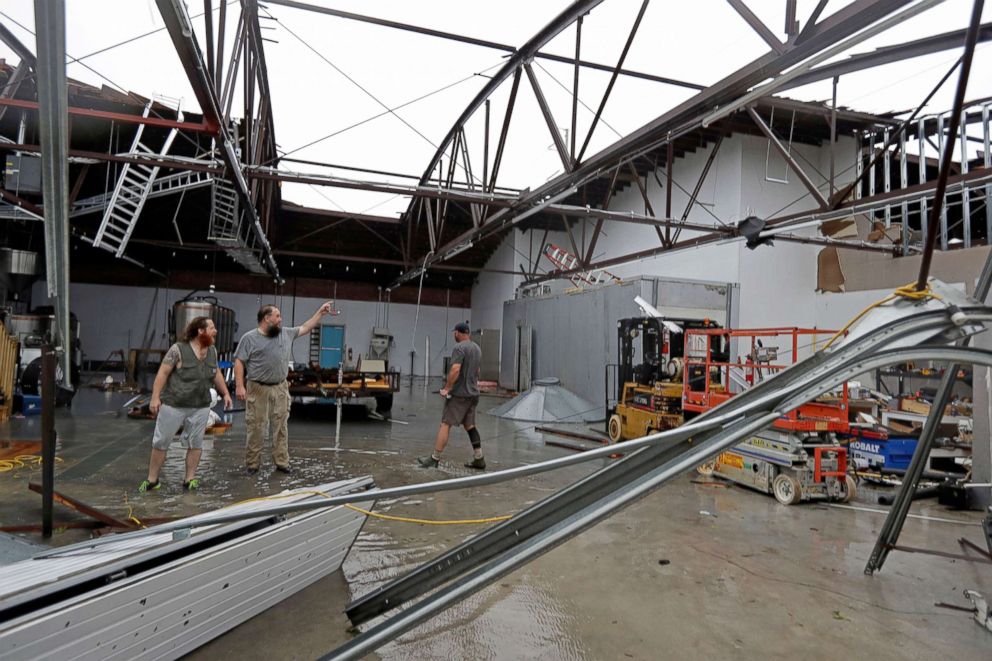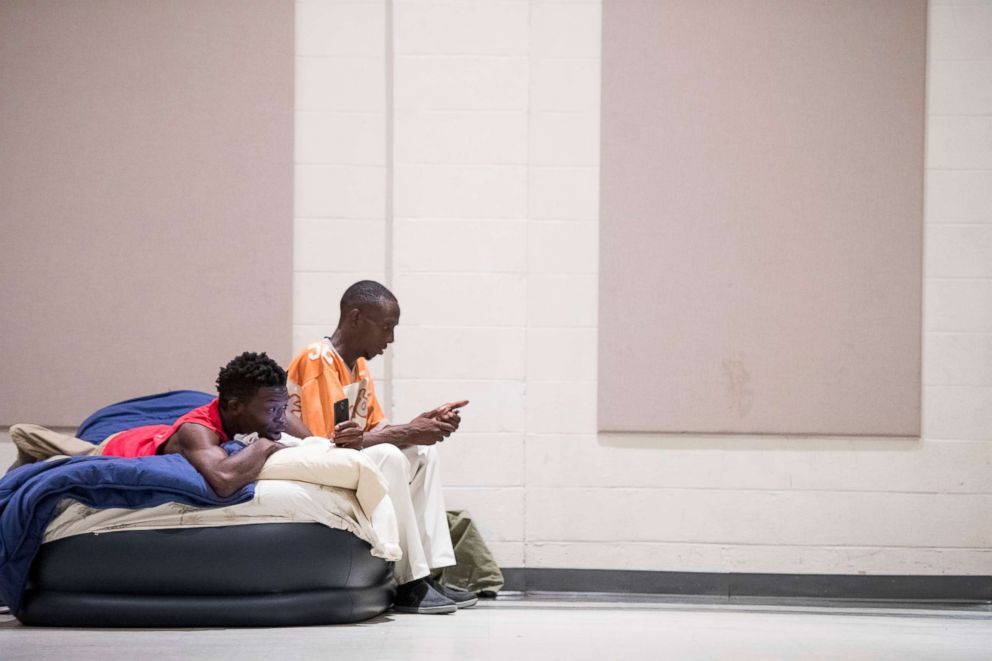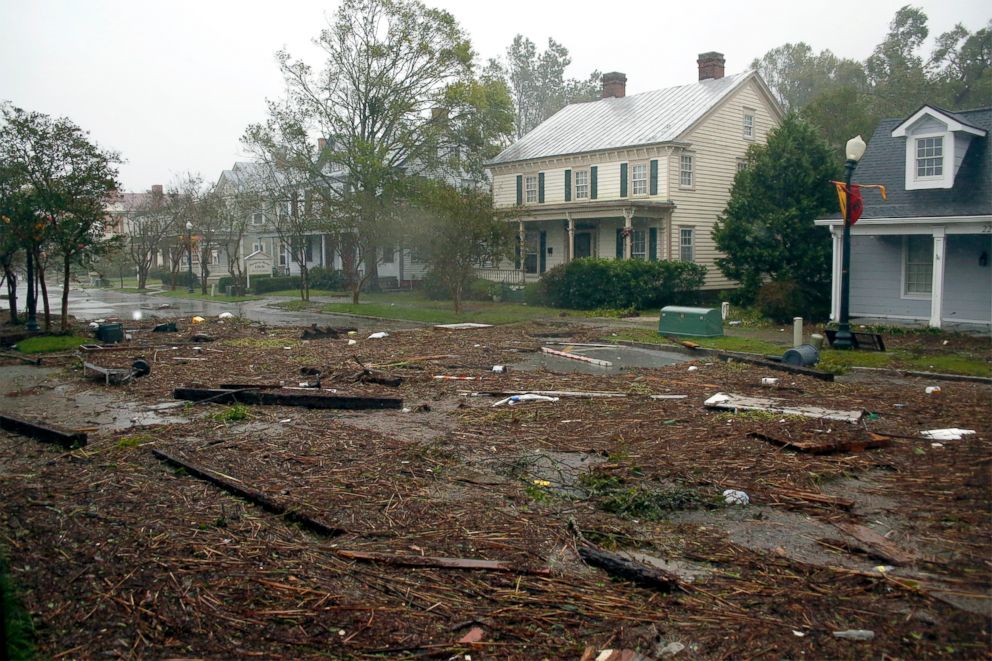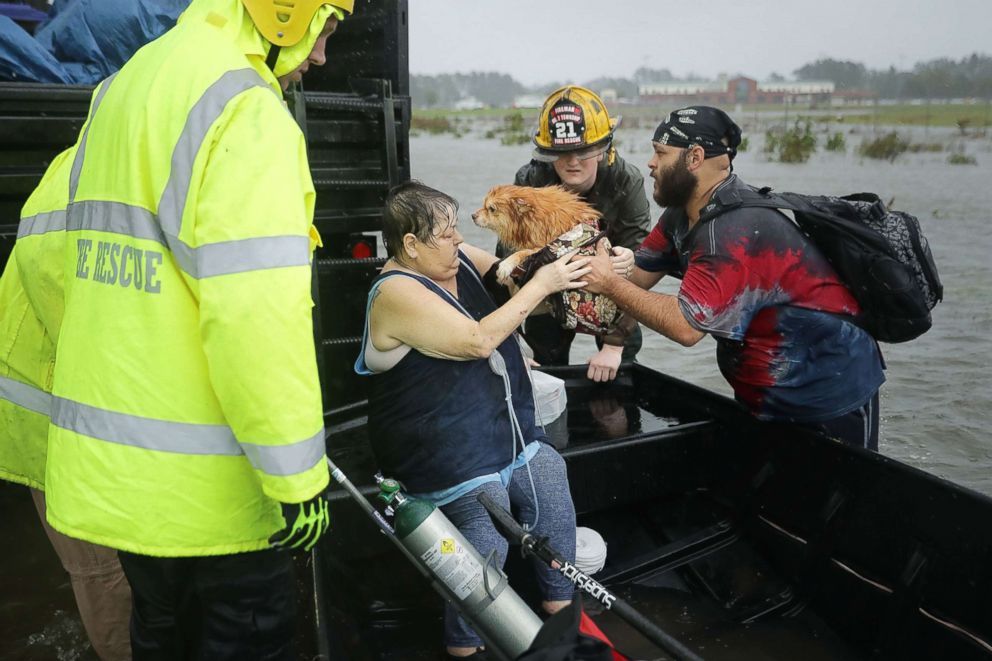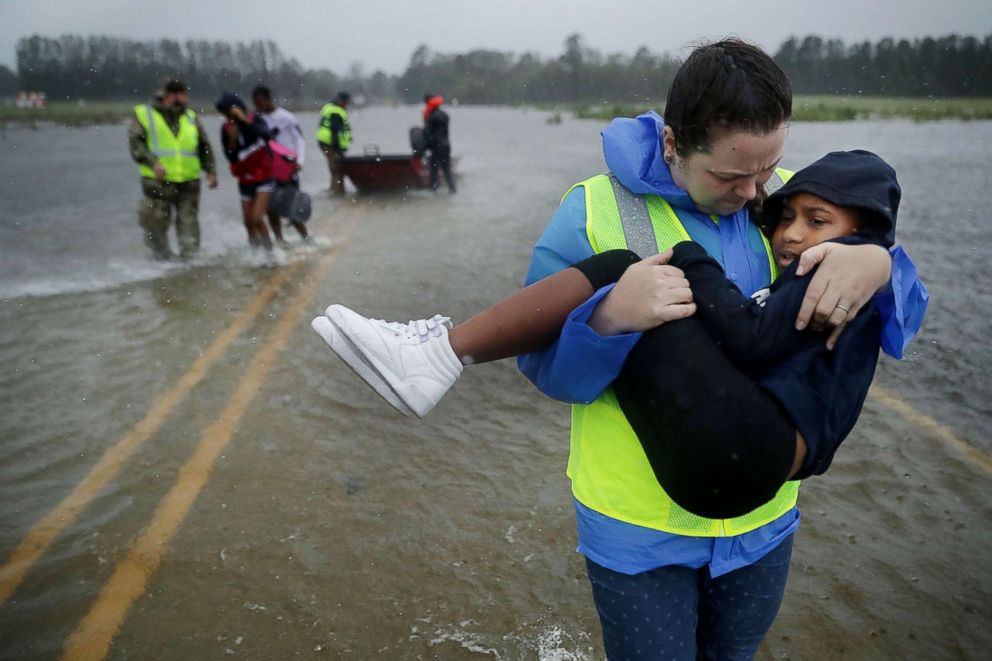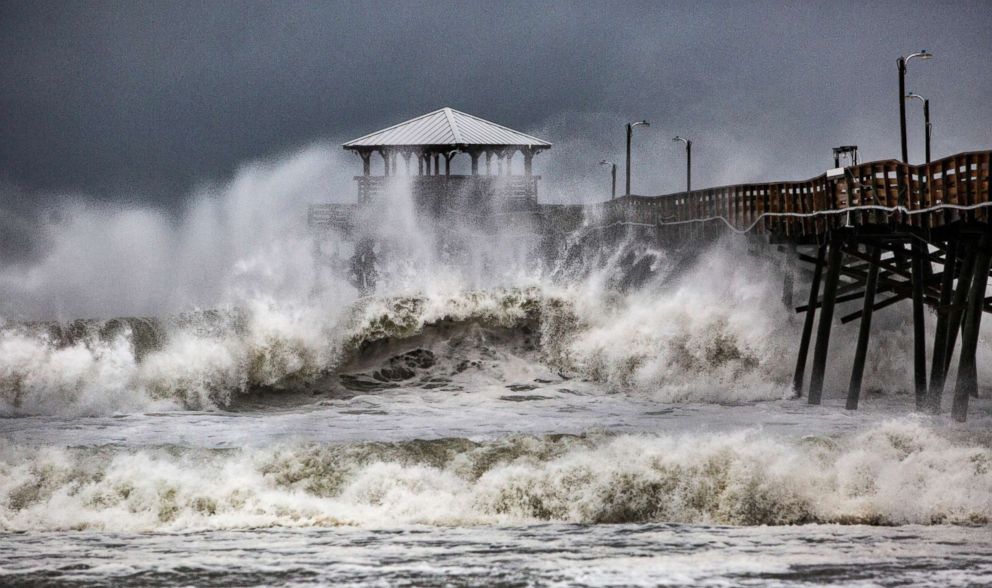People in Hurricane Florence's path explain decision to ride it out: 'I feel more comfortable here'
Evacuation orders have been issued for more than a million people.
Joyce Boucino lives a block and a half from the water in North Myrtle Beach, South Carolina, but she’s not leaving.
She and her husband, along with a few other residents who’re defying the mandatory evacuation orders, are staying put as powerful Hurricane Florence looms off the Carolina coast in the coming hours and days.
“It feels more empty,” Boucino, 70, said of the neighborhood, which counts many seasonal residents. “And if you hear a noise, it gets your attention.”
Two big factors in their decision, echoing other residents in North and South Carolina who are determined to ride out the hurricane at home, are their pets and the confidence that their house is “very, very secure” because they oversaw the construction.
The Boucinos have several dogs and cats and are also fostering feral kittens for the storm.
“This is like having your children,” she said of the animals. “You’re not going to leave your children.

“They’re feeling the stress. They’re feeling the atmospheric pressure changes and the stress of their owners.”
Rhonda Heath, who lives about 150 miles north in New Bern, North Carolina, faced a similar decision.
Heath, 54, is a volunteer president of the Colonial Capital Humane Society in New Bern and works in the accounting department of a construction company.
She is a lifelong resident of Craven County, and her single-story brick home falls in an area under a mandatory evacuation.
She has “too many animals” at her home, including some she is fostering for the storm, to bring to a shelter, Heath said.
“I feel more comfortable here,” she said, adding that if she were to leave, “I don’t know when we’d be able to get back.”
“This one has actually got me concerned because of the intensity,” she said of the storm
Cleanup begins in the areas damaged by Hurricane Florence
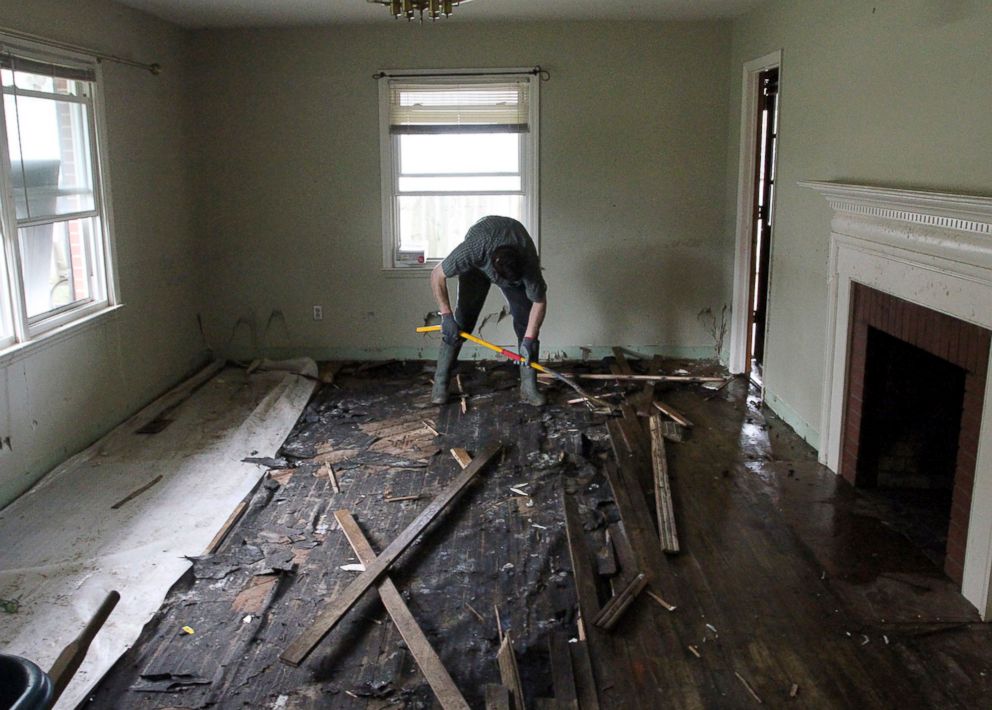
Heath has been preparing for the storm “since last week,” stocking up with canned goods, bread, water and potato chips; “things that you don’t have to heat up and things that you don’t have to have electricity for,” she said.
“With me being in my house, I know I can take care of my animals here and I can take care of myself here,” Heath said.
Still, she added, “I’ve been through a lot of them but this one has given me the most uneasy feeling I’ve had about one.”
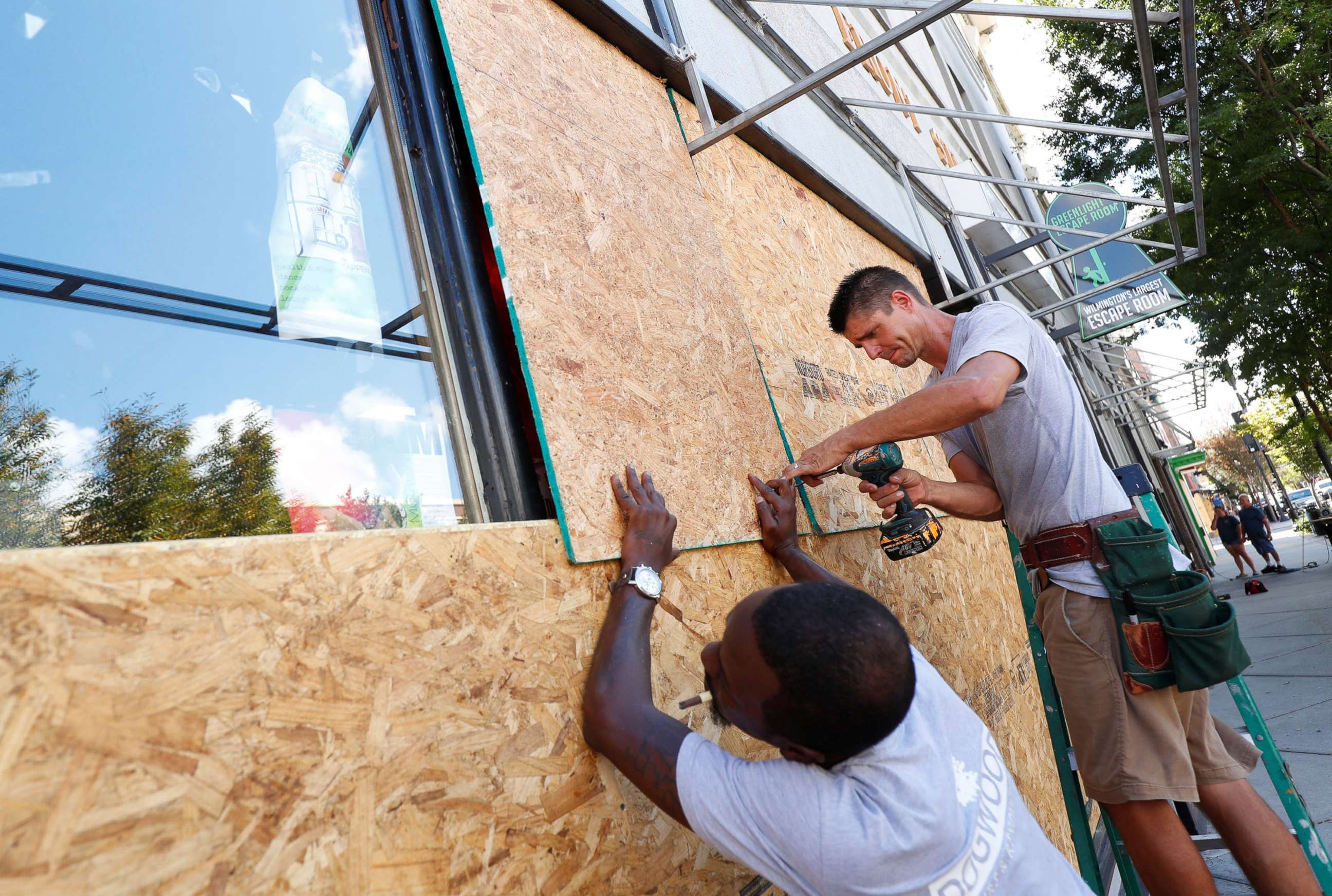
Jaime Marvulli expressed a similar worry about Hurricane Florence. She is a high school physical education and sports medicine teacher in Conway, South Carolina, who has lived in the state since moving there for college in 1999.
The only other time she evacuated was as a college student in 1999 when her school issued a mandatory evacuation for Hurricane Floyd, Marvulli, 40, said.
“It’s the first time that I’m actually packing a bag, getting my dogs prepped,” she said.
“Honestly, this is the first time besides [the evacuation during college] that I’m actually packing some stuff, like if I have to grab and go.”

Her pets -- a Weimaraner and a black Labrador -- are also a factor, as are the two pit bulls belonging to a friend who is staying with her.
“Our house is divided right now,” she joked of keeping the dogs apart.
Her home is roughly 20 miles from the ocean and not in a mandatory evacuation zone but “pretty close,” Marvulli said.
Her community has banded together, with the residents of about a half-dozen houses staying put and checking in on one another.
“We make sure we have all the supplies that we need between the six houses,” Marvulli said, noting that extra ice, flashlights, candles and lanterns were among the supplies she collected.
While she is about 20 miles from the coast, Nikki Fontana’s house is a block and a half in from the ocean in North Myrtle Beach.
Fontana, a town councilwoman, is in the mandatory evacuation zone and plans to leave but it staying as late as possible because, with her role in government, “I like to know what’s going on with my city in a storm.”
She was born and raised in the area and has lived in a raised 1950s beach house for 18 years. The home has a garage and the office for her upholstery and rug cleaning business is on the ground level, while the two bedroom-home is above.
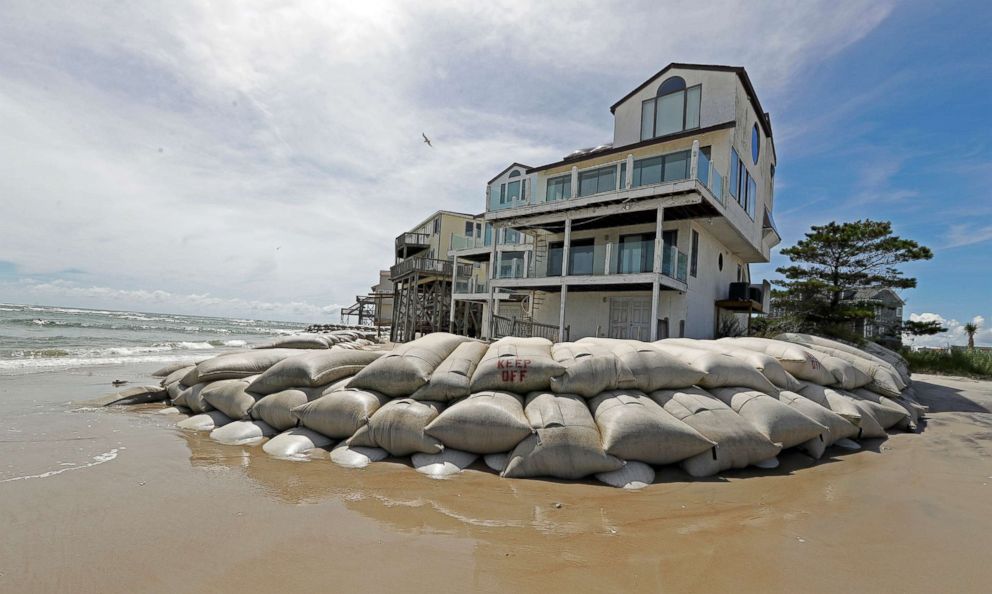
“We have brought in all the outdoor furniture, plants, secured grills, hot tubs,” Fontana said, ticking off the steps she has taken to secure the home.
“We’ve boarded up the windows, we moved our camper into our yard. It wouldn’t fit in the garage. One of our cars is boarded up in our garage. All the windows are boarded.
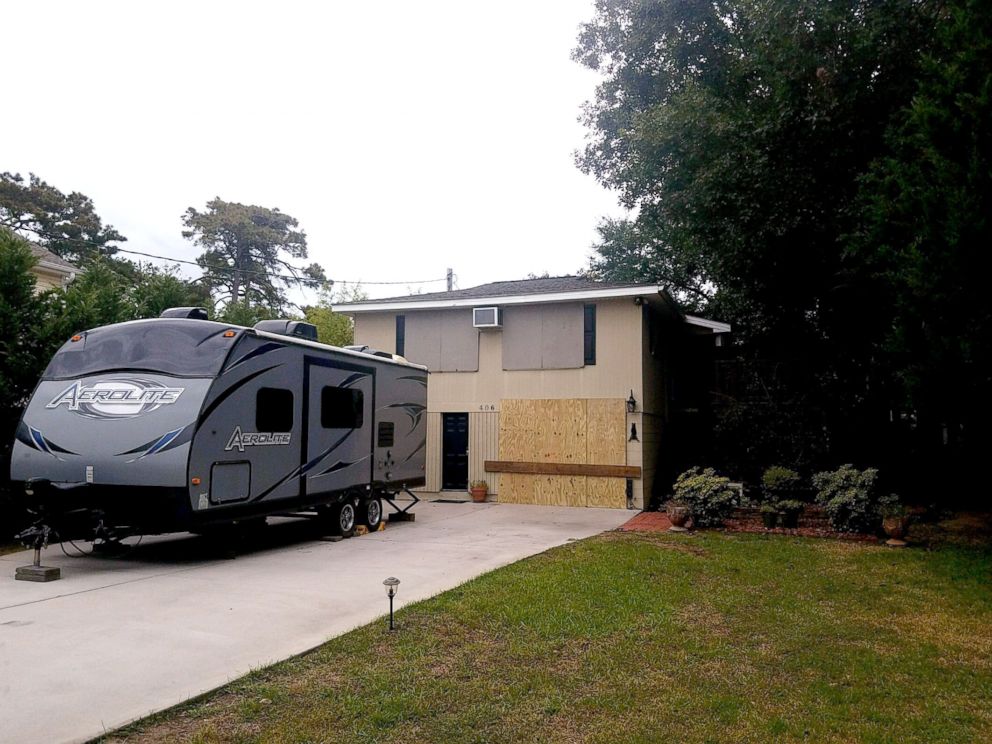
“I worry about not the material things, not the houses, not the homes, not the businesses but the people first,” she said.
She plans to go either to relatives’ homes or an emergency operation center if and when she does evacuate, which she did in 2016 when Hurricane Matthew hit. She recalled how eerie it felt to go back out into the town after the storm.
“It was like being in another country,” Fontana recalled. “The entire city had lost power. It was dark out. It was kind of scary.”
This time, Fontana said, she has driven up and down the beach in recent days, noting that most people appear to have cleared out.
“It is a ghost town,” she said. “There’s no one out.”
